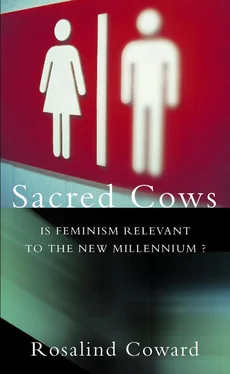This book is a detailed account of what has been happening between the sexes. What is the truth about the so-called male crisis? Is it an illusion? Or has men’s position really changed for the worse? If so, is this descent of man anything to do with the ascent of woman? What has been feminism’s contribution to these complex economic changes? Has it been useful in keeping gender in mind or has it simply hung on to its old ideologies and policies, involving a problematic blindness to the most vulnerable groups of men? And if blind to the different degrees of vulnerability of men, is it possible that feminism might have helped demonize certain groups, disguising rather than illuminating what is really happening in society.
This book has three key themes: families and parenting; the increasingly problematic socialization of boys and young men; and the fraught area of sexual relations. In each it is clear that feminism clings to the fundamental tenet that women are by definition the oppressed party. In each case this obscures what is really happening and can produce public reactions and social policies which can be retrograde and divisive. And in each case, by clinging to its old tenets, feminism fails to see that it has been successful, that it has changed society in deep and unforeseen ways. It is time that feminism faced up to the problems of its success.
So first I examine where feminism came from, why it was necessary in the 1970s and the ideas that drove it on ( Chapter 1). In Chapter 2I look at the tidal wave of social emancipation that resulted and how feminism’s fundamental ideas spread into the area of personal interaction where perhaps they were not as illuminating as they had been in the public areas of work, leisure and politics. Feminism’s demand for women’s rights began to become problematic and Chapter 3looks at the success feminism had despite, rather than because of, its best intentions. The whirlwind of economic change in the 1980s, which bears the name of a woman, ‘Thatcherism’, delivered women the economic role that feminism demanded but without the accompanying social benefits and at the direct cost of many men. Families and communities were torn apart and by the 1990s men had become a problem.
In Chapter 4, I look at this unexpected turn in sexual relations and how feminism’s response was to deny rather than face up to the crisis of masculinity, to the fact that men were being forced to change by economic realities. This was a missed opportunity; hadn’t feminism demanded that traditional male values and behaviour should change? But it was hostile economic forces, not feminism, which brought this about. So when ( Chapter 5) men appeared vulnerable, with a significant increase in the suicide rate, feminism had no help to offer. In fact, men were losing moral authority in the family and on the public stage, a change which should have had an entirely positive effect on the balance of power between the genders ( Chapter 6and Chapter 7). Unfortunately, the centre of moral certainty was gravitating towards women ( Chapter 8), not just swinging against men. It produced a situation where on the one hand some men identified with the self-mockery of Nick Hornby and Men Behaving Badly, and, on the other, women adopted the posture of superwoman, and no one quite believed the rhetoric.
Women were unsure of what it all meant and many found it easier to take refuge in ‘womanism’ than to take seriously a growing crisis of masculinity ( Chapter 9), so it is not surprising that womanism gave birth to a reaction, a call for the need to reassert traditional masculine values and male authority ( Chapter 10). This confrontation of views, of reasserting the traditional emotional divisions between the sexes, however, was and is profoundly out of touch with how parenting is being done, with the choices both sexes are making, with the way in which young males are being socially stigmatized and in the conduct of sexuality. These simplifications about gender have turned out to be worse than useless in explaining what is really going on. In fact, they have been actively misleading, disguising other problems which needed to be recognized. So the final chapters of this book are devoted to examining each of these in turn. I look at how social problems involving young men and boys are not caused by gender in a simple way but because they are at the sharp end of dramatic changes in the mix of our society ( Chapter 11and Chapter 14). Around parenting too ( Chapter 12and Chapter 13), gender simplifications have muddied our perceptions, preventing us from recognizing how people are living their lives and what really concerns them. Finally I look at how gender relations are in fact much more complex and muddled. When it comes to some of the controversial sexual issues of the times – sexual harassment ( Chapter 15) and date rape ( Chapter 16) – the old polarities of men as powerful oppressors and women as passive victims simply will no longer work.
In short, feminism has succeeded beyond the wildest dreams of the brave women who fought its first battles. Its future in the new millennium is to face up to the problems of its success, and to see gender as just one possible reason for social and personal conflicts rather than an all-encompassing cause. But if it is going to be capable of making these changes, it will first have to let go of its sacred cows.
Конец ознакомительного фрагмента.
Текст предоставлен ООО «ЛитРес».
Прочитайте эту книгу целиком, купив полную легальную версию на ЛитРес.
Безопасно оплатить книгу можно банковской картой Visa, MasterCard, Maestro, со счета мобильного телефона, с платежного терминала, в салоне МТС или Связной, через PayPal, WebMoney, Яндекс.Деньги, QIWI Кошелек, бонусными картами или другим удобным Вам способом.












